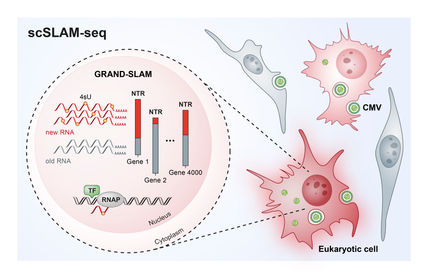Nitto Denko Develops World's First Biodegradable Gene Carrier
New Polymer Material Safely Delivers Genes Into Cells
Advertisement
The Nitto Denko Group has developed the world's first biodegradable gene carrier, a polymer material that can be used in cellular experiments and other bio-related areas. The carrier, which can transfer foreign genes into animal cells, exhibits extremely low cell toxicity due to its biodegradability and enables transfer efficiency to an equal or higher degree than traditional methods.
Research and development, carried out through Nitto Denko Technical Corporation, the group's Oceanside, California based research and development subsidiary, drew on the company's advanced polymer material technology. Carrier reagents will be available worldwide from November 2003 through Q-Biogene, a bio-materials sales company with bases in the U.S. and Europe, with the product name CytoPure(TM). Sales in Japan are scheduled to be launched through Funakoshi.
Presently, elucidating gene functions is one of the main initiatives in this area of the life sciences. The goal is to eventually link these functions to genetic therapies, whereby foreign genes are transferred into a body and would function like a drug. Current gene-related research is primarily at the stage of cellular-level experiments, but as the mechanism for freely transferring genes into cells, gene carriers are indispensable.
Gene carriers are roughly divided into two types. The first method uses viruses, while the other method uses polymer materials. For the process of gene transfer, high transfer efficiency and low cellular toxicity are both demanded. In general, the method that uses viruses is problematic with regard to safety, and the need for polymer materials is expected to increase in the future. However, polymer materials up to this point were unable to meet either of the two demands.
The new material and its related technology are not only expected to be used more and more widely in bio-related research, but may also help smooth the road leading to safe genetic therapies in the future. Because of its biodegradability, the new gene carrier breaks down quickly inside the cell and displays an extremely low cellular toxicity, enabling a safer method of gene transfer. The gene-transfer efficiency of this material is outstanding. It can be used for various types of regular animal cells, but it is also applicable to HUV-EC and other cells for which gene transfer has been relatively difficult.
Nitto Denko plans to continue developing and commercializing new technology and bio-materials rooted in biopolymers for gene and drug delivery, tissue engineering and genetic diagnoses. In the near-term, the company expects a 10% share of the $200 million cellular-level gene transfer research market. In the future, the Nitto Denko hopes to develop applications for the animal experiment market and the genetic therapy market.























































